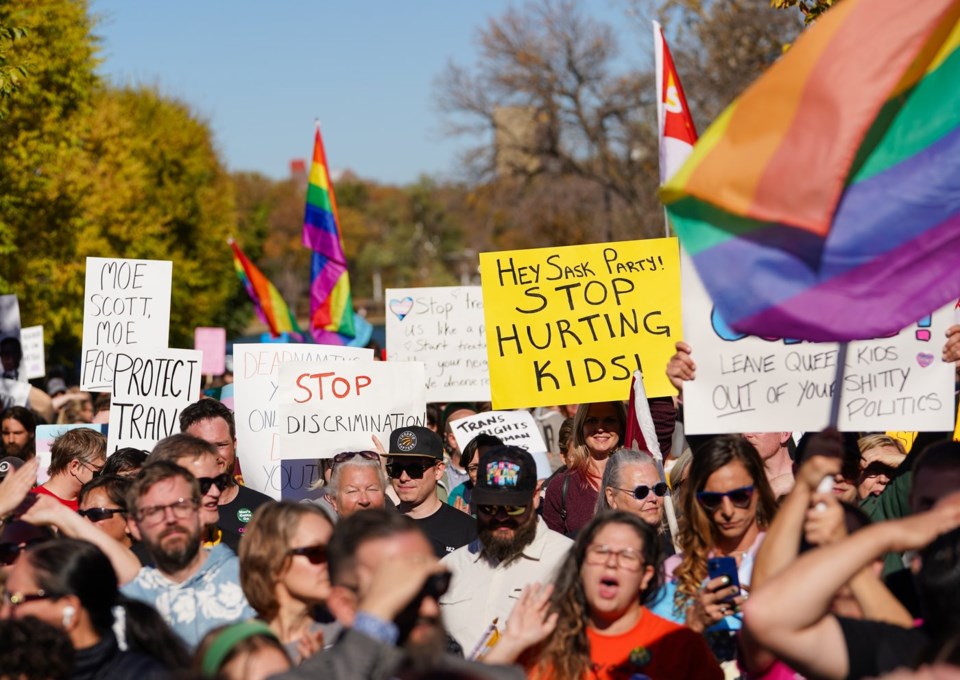REGINA — The Saskatchewan Court of Appeal has ruled a challenge of the province's school pronoun law can continue.
In the decision released Monday, the court granted, in part, the government's appeal of a decision that allowed the challenge.
But the court says a judge has jurisdiction to determine whether the law limits Charter rights.
"(LGBTQ+ group) UR Pride’s litigation may continue in the Court of King’s Bench," the ruling says.
The law, which came into force in 2023, requires parental consent if children under 16 want to change their names or pronouns at school.
Lawyers for UR Pride brought forward the challenge, arguing the law causes irreparable harm to gender diverse youth and its case should move ahead.
The government argued its use of the notwithstanding clause should end the challenge.
Nearly a dozen groups intervened in the appeal, including the government of Alberta, which argued in favour of Saskatchewan.
Alberta passed a law last year requiring students 15 and younger have parental consent to change their names or pronouns. Students 16 and 17 don't need consent but their parents have to be notified.
New Brunswick had a pronoun policy under Blaine Higgs's Progressive Conservatives in 2023, but Premier Susan Holt and her Liberal government revised it after being elected last November.
UR Pride amended its challenge and argues Saskatchewan's law violates Section 12 of the Charter, which is the right to be free from cruel and unusual treatment. The province cited two other sections when it invoked the notwithstanding clause.
Former Justice Minister Bronwyn Eyre said last year the Saskatchewan Party government wouldn't hesitate to use the notwithstanding clause again.
This report by The Canadian Press was first published Aug. 11, 2025.
Jeremy Simes, The Canadian Press



